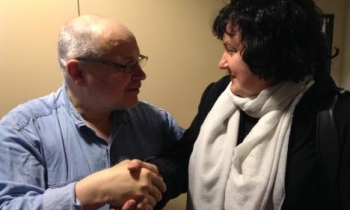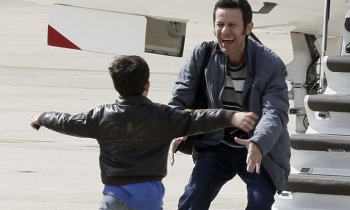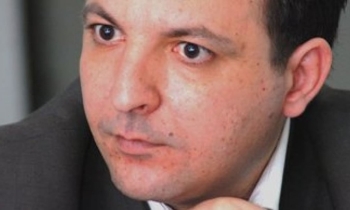Since Prime Minister Thaksin Shinawatra took office five years ago, dozens of journalists who criticized the government have been fired or sued for libel, television talk shows have been canceled and radio stations yanked off the air.
Thaksin, a telecom tycoon-turned-politician, has repeatedly blasted reporters who question his policies as ignorant and unpatriotic. He and his close associates have taken over media companies and pressured journalists into subservience, taming what was once hailed as one of Asia's freest presses.
But as an anti-Thaksin movement has gained momentum with almost daily street protests, journalists have begun to report the news as they see it _ not as the premier wants it seen. And even state-owned outlets are offering more coverage of government opponents.
"When people rose to criticize Thaksin, the media _ whether they worked for the state or not _ could no longer close its eyes and ears and pretend not to see it and not report it," said Pattara Khumphitak, president of the Thai Journalists Association and political editor of the Post Today.
Late last year, tens of thousands of protesters started demonstrating and calling for Thaksin's resignation on allegations of corruption, but most television stations did not even mention that an anti-Thaksin movement was brewing.
Then as the movement gained momentum, Thaksin dissolved parliament and called snap elections, and the press had to cover the news the people in power could no longer cover up.
Thailand's media have been threatened since Thaksin became prime minister in 2001.
Shortly after he took office, Shin Corp., the telecom giant once owned by his family, fired 21 journalists from its ITV television station. The journalists, who won a court case and years of back pay for being illegally dismissed, claimed they were pressured to downplay negative news about Thaksin and his Thai Rak Thai party.
The dismissals turned out to be a harbinger of more attacks on the media.
Several television and radio talk shows were subsequently taken off the air, editors and reporters were fired, and the government liberally filed lawsuits against its critics.
"Before the anti-Thaksin movement began, we were under a lot of pressure ... nobody dared to go up against him, so he had a free hand to manipulate the media," said Karuna Buakamsri, one of the fired ITV reporters.
The government finally met its match when it tried to silence media mogul and fierce Thaksin critic Sondhi Limthongkul.
In September, state-owned Channel 9 canceled Sondhi's news commentary program, and Thaksin sued him for $12.2 million for defamation. The premier also obtained a court order barring the outspoken publisher from making and distributing remarks that could damage his reputation.
Heeding the advice of Thailand's revered King Bhumibol Adulyadej, Thaksin later withdrew his half dozen criminal and civil lawsuits against Sondhi, but Sondhi was unforgiving and his crusade against Thaksin swelled.
As Sondhi continued to criticize Thaksin with impunity, other journalists "refused to be intimidated any longer," said Ubonrat Siriyuvasak, a media studies professor at Chulalongkorn University who also monitors the Thai media.
Sondhi was "a leader who dared," Ubonrat said. "The public accepted him, and the media started to realize that they knew in their hearts they had to speak out."
Other journalists have since won cases in court. Earlier this month, a Thai criminal court acquitted media critic Supinya Klangnarong of the advocacy group Campaign for Popular Media Reform after she was sued by Shin Corp. for suggesting it had profited from its connections with the government.
Still, political interference continues.
A television news anchor and editor and two radio talk show hosts were recently fired for reports on the current political situation that "negatively impacted people in power," the Thai Journalists Association said in a statement last week.
The accusations by the prime minister and government leaders that the media are biased and distort the news are one way that "politicians silence the voices" of the press, the group said.
"Journalists have been gravely threatened by a group of people who are in power," it said.









